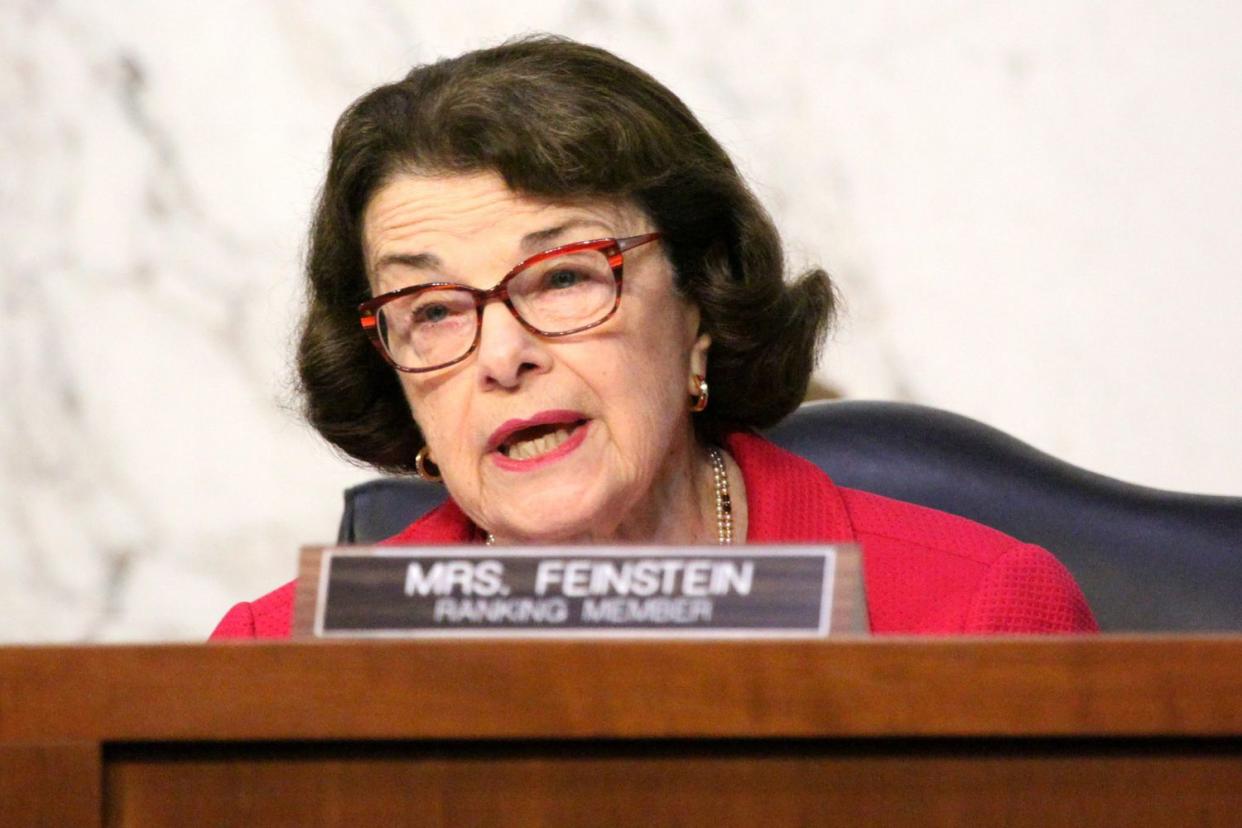Sen. Dianne Feinstein Announces She Won't Run for Reelection in 2024, but Intends to Complete Her Term

Kevin Dietsch-Pool/Getty Dianne Feinstein
Sen. Dianne Feinstein, the longest-serving woman senator in U.S. history and the oldest current member of Congress, announced Tuesday that she will not seek reelection in 2024, though she does intend to serve out the remainder of her term. The news comes amid recent claims that the 89-year-old California Democrat's memory is deteriorating and whispers that she has been preparing to retire.
"I am announcing today I will not run for reelection in 2024 but intend to accomplish as much for California as I can through the end of next year when my term ends," she said in a statement issued Tuesday.
Feinstein added: "Even with a divided Congress, we can still pass bills that will improve lives. Each of us was sent here to solve problems. That's what I've done for the last 30 years, and that's what I plan to do for the next two years. My thanks to the people of California for allowing me to serve them."
RELATED: California's 2024 Senate Race Is Poised to Be a Historic Showdown — Here Are the Candidates to Watch
I am announcing today I will not run for reelection in 2024 but intend to accomplish as much for California as I can through the end of next year when my term ends. Even with a divided Congress, we can still pass bills that will improve lives.
— Senator Dianne Feinstein (@SenFeinstein) February 14, 2023
The news comes amid reports that some lawmakers are concerned about the senator's health.
A report published by The San Francisco Chronicle in April of 2022 cited four U.S. senators, including three Democrats; three former staffers; and a Democratic House member from California, who said Feinstein's memory was deteriorating to the point that they felt she could not fulfill her job duties without the help of her staff.
"I have worked with her for a long time and long enough to know what she was like just a few years ago: always in command, always in charge, on top of the details, basically couldn't resist a conversation where she was driving some bill or some idea. All of that is gone," said one lawmaker who, according to the Chronicle, asked not to be named because of the sensitive nature of the matter.
"She was an intellectual and political force not that long ago, and that's why my encounter with her was so jarring," the lawmaker added at the time. "Because there was just no trace of that."
RELATED: Sen. Dianne Feinstein Responds After Colleagues' Accounts That Her Memory Is Deteriorating
In a statement to PEOPLE shared by her press team, Feinstein — who has been in office since 1992 — spoke out against the accounts on her mental health after they first surfaced.
"I remain committed to do what I said I would when I was re-elected in 2018: fight for Californians, especially on the economy and the key issues for California of water and fire," she said in the statement.
She added that she has been "focused for much of the past year on my husband's health and ultimate passing," a reference to the February death of her husband, Richard Blum, but said she "remained committed to achieving results and I'd put my record up against anyone's."
Following the announcement from her office Tuesday, California Gov. Gavin Newsom released a statement of praise calling her a mentor, friend and "powerful champion for California and California values."
"A daughter of San Francisco, Senator Feinstein became the first woman to serve as mayor of the city after the assassination of Mayor George Moscone and Supervisor Harvey Milk," he said. "The tragic events of that day led to her lifetime crusade for common-sense gun control laws, including her role as author of a federal assault weapons ban. For the last 30 years, she has served her state with distinction as our senior U.S. Senator, blazing a trail for a new generation of female lawmakers."


